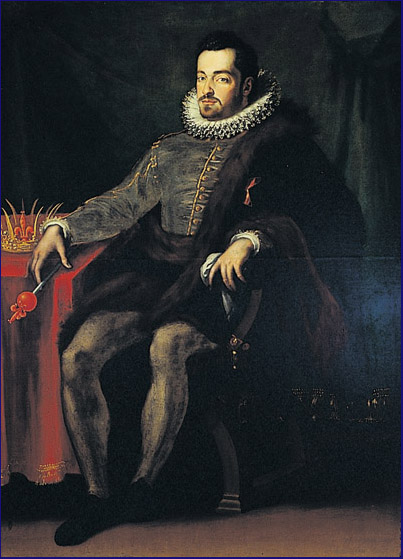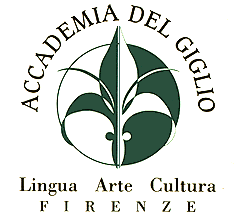 In 1587, when the Grand Duke Francesco died without a male heir, his younger brother Ferdinand, who was living in Rome at that time, inherited the title of Grand Duke of Tuscany. Ferdinand was Cosimo’s and Eleonora’s fifth son. He had become cardinal when he was 14, but in 1589 he renounced to his cardinal’s hat so as to marry Christine of Lorraine. From this marriage Ferdinand had eight children but he especially established good relationships with Spain, whose king was also reigning over the region of Lorraine (today part of France).
In 1587, when the Grand Duke Francesco died without a male heir, his younger brother Ferdinand, who was living in Rome at that time, inherited the title of Grand Duke of Tuscany. Ferdinand was Cosimo’s and Eleonora’s fifth son. He had become cardinal when he was 14, but in 1589 he renounced to his cardinal’s hat so as to marry Christine of Lorraine. From this marriage Ferdinand had eight children but he especially established good relationships with Spain, whose king was also reigning over the region of Lorraine (today part of France).
Ferdinand was a capable administrator and he soon managed to improve the economical situation of the Medici’s bank as well as to open new branches in many cities of Europe.
During his reign Tuscany and Florence had a second golden age: Ferdinand created the free port of Livorno, he set up a stronger navy and he successfully fought against pirates on the Barbary coast in 1607 and against a Turkish fleet the following year. His military victories were frescoed by Poccetti in the Pitti Palace.
Furthermore, by diverting partially the flow of the Arno River, he had the Naviglio built, a canal that allowed to make the commerce between Florence and Pisa easier.
Ferdinand was also very concerned with new agriculture techniques: he strongly supported an irrigation project in the Val di Chiana and in Val di Nievole in order to have more land cultivated.
He also carried on the family tradition of patronizing the arts. So he started the construction of the Princes’ Chapels in the San Lorenzo Church (a must of our Art History Course) and he charged Buontalenti to design and build the Fortress of Belvedere. Last but not least, Ferdinand promoted the Camerata dei Bardi, a musical association, which began the great tradition of Italian Opera with its first melodramas.
Ferdinand died in 1609, leaving the throne to Cosimo, the eldest of his four sons.
The Medicis dynasty: Ferdinand IScrivi un commento |







Commenti recenti